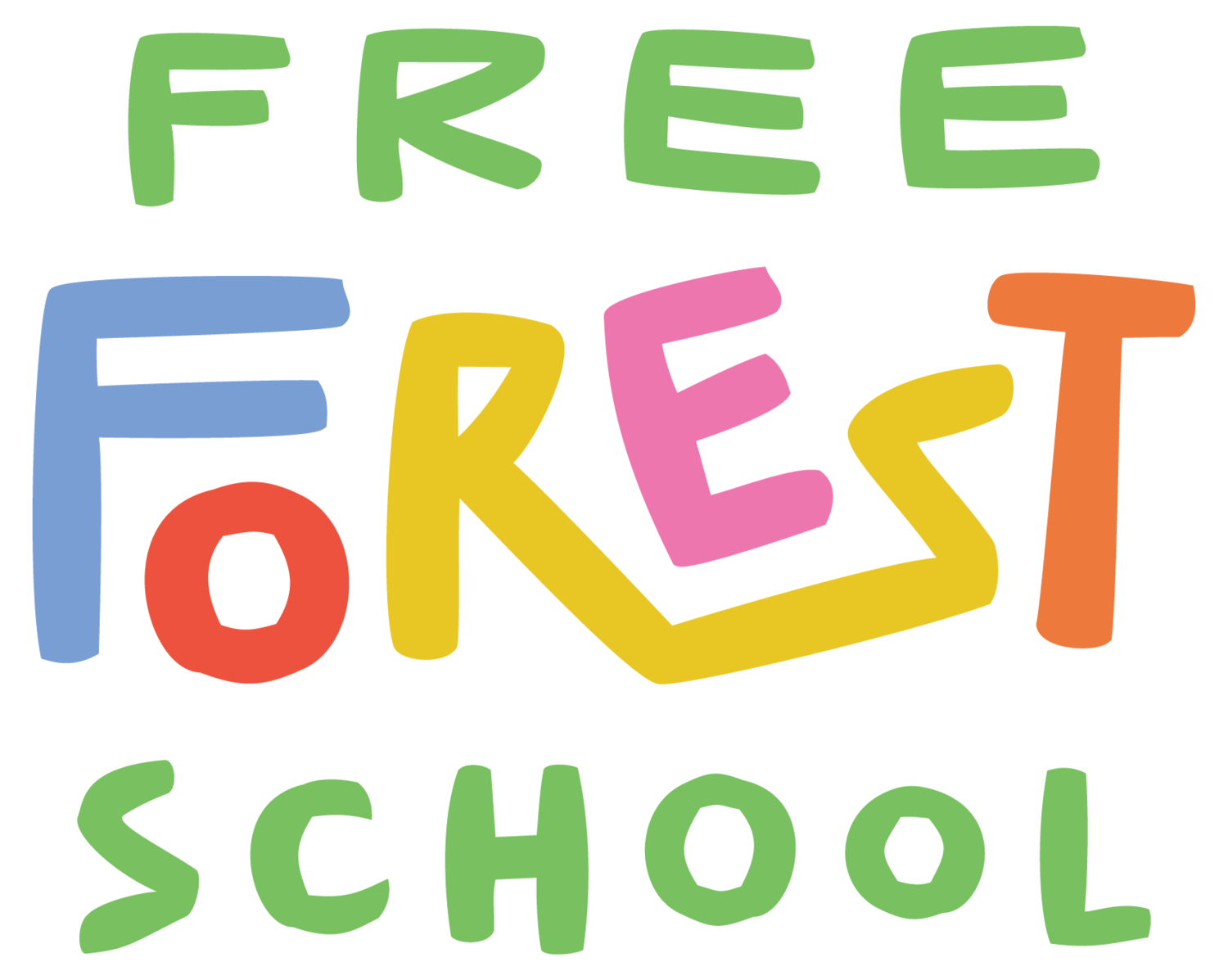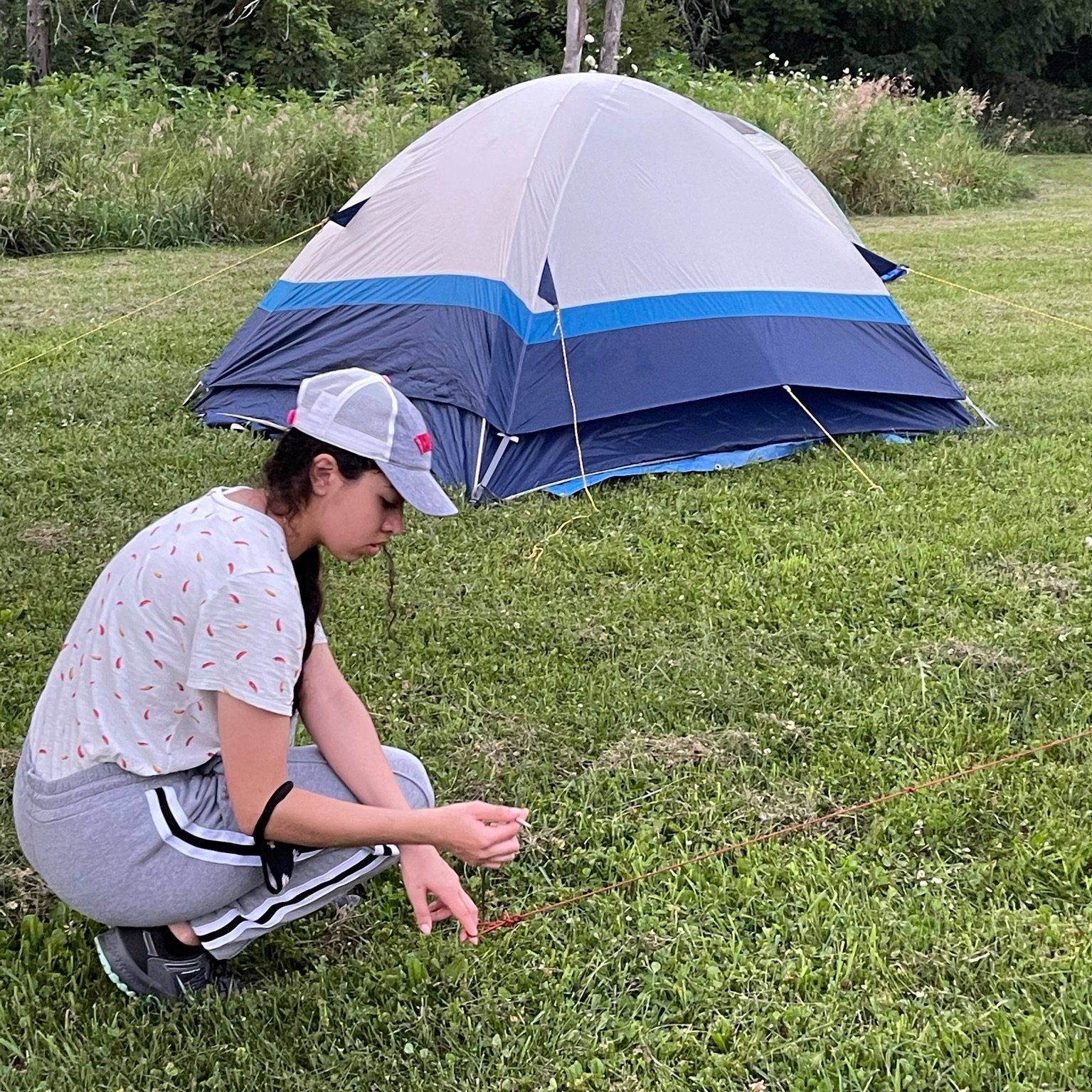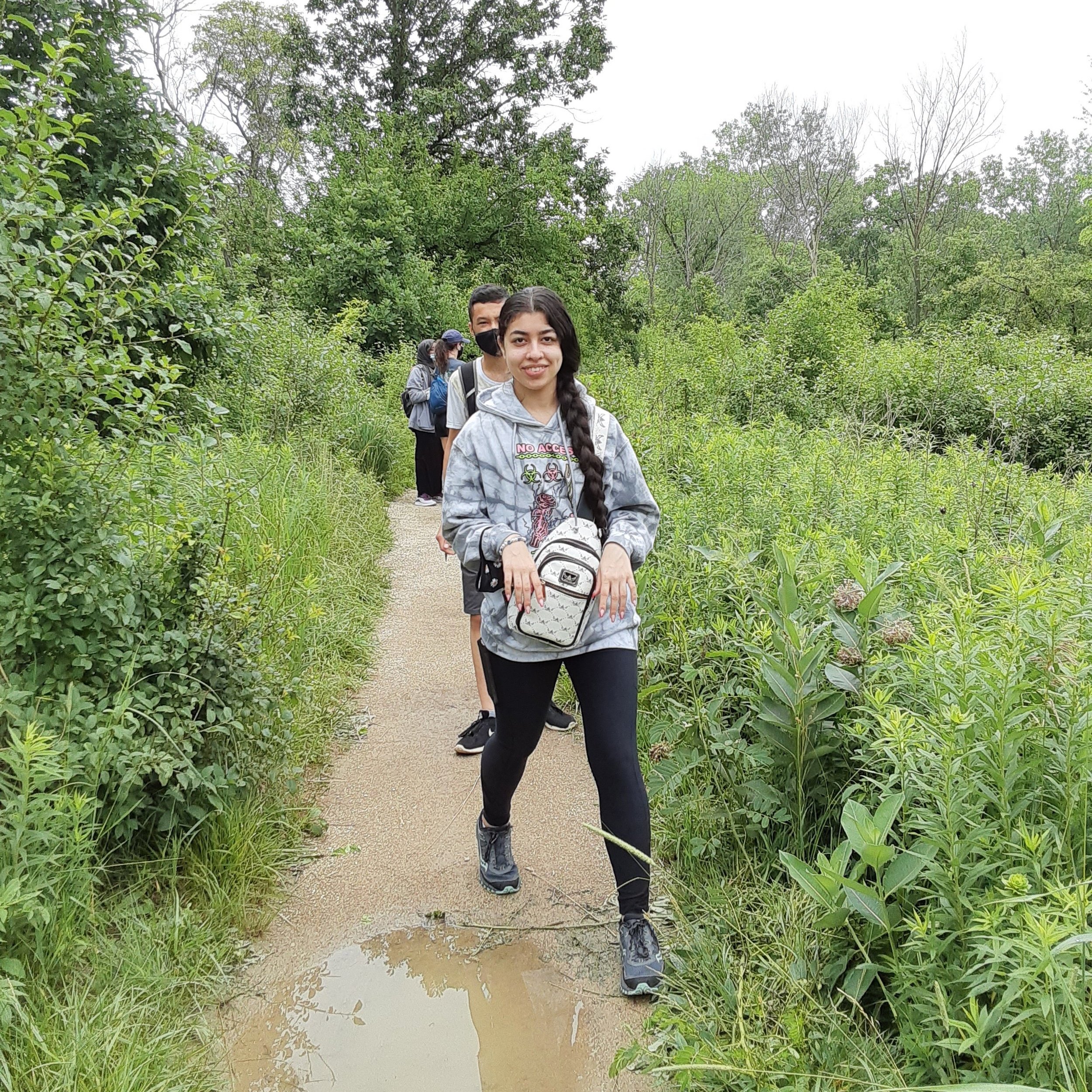A Young Refugee’s Journey Getting Comfortable Outdoors
By Ellie White
Lina moved with her family to Chicago from Iraq when she was eight years old.
She notes that, when she moved, “everything was just so different and strange and bizarre [...] I didn’t know the language. I didn’t know what to expect. I didn’t know anything about where I was. I was scared to do anything and everything.”
After a horrible first day of school, Lina spent her time either at home or in class – she was lonely. Leaving the house, even with her family, made her feel uncomfortable.
This experience of isolation and overwhelm is a reality for many kids and families who are resettling into a new country. Lina’s story shows how valuable it is to remove barriers and promote access to community connection and welcoming outdoor experiences for refugee youth.
Lina’s world started changing when she began having regular time in nature with other kids in a way that honored her background and experiences.
A few years after that first day of school in Chicago, with her mom’s insistence, Lina started participating in REACH (Refugee Education & Adventure Challenge), an outdoor adventure program for refugee youth.
Through REACH, Lina saw the joy and discovery that was possible in the outdoors. She had opportunities to face her fear of heights through a ropes course, share stories with friends around a campfire, learn kayak rescue skills, and go on an all-day mountain biking trip. She started enjoying getting out of her comfort zone and trying things.
“Until I got involved with REACH,” she says, “I didn’t know anything about swimming, hiking, kayaking, camping, and the other things that we could do in life and outdoors. [...] I felt way more comfortable going out with REACH because they showed us things that I wouldn’t have known about by myself or just with my mom.”
By easing into outdoor activities with other refugee youth, Lina saw a big transformation in her comfort and overall outlook in this new place. Now Lina likes being out in open spaces, where she feels like she can do whatever she wants and she doesn’t have a care in the world.
Proud. Relaxed. Calm. In control. Positive. These are some of the words that Lina uses to describe how she feels when she’s in nature.
She says that when you’re in nature, you can communicate with people, learn about others, make great friends and memories, try new skills, and learn things about nature that you never knew before.
Lina sets up her tent during a REACH camping trip
REACH Executive Director and Founder Shana Wills has worked with displaced populations for many years and has had a first-hand look at how systems continue to fail refugees. Funding, capacity, time – there just aren’t enough resources to adequately support people throughout the processes of fleeing persecution, awaiting permanent solutions, and, for the fortunate few, settling into life in a new country.
In her work with resettlement programs in Chicago, Wills saw refugee youth often not fitting in or being welcomed by their peers, and some youth falling vulnerable to gang recruitment. The current models of integrating youth into the community were just not working.
Like the many parents and caregivers in the Free Forest School community, Wills understands the value of having opportunities to get into nature and “experience dynamic learning outside the traditional classroom.” She founded REACH to make sure refugee youth have that same access.
Burmese and Eritrean youth enjoying the outdoors at a REACH event
Recounting her first day at school, Lina remembers that “the teacher didn’t ask anything about me, but expected I would just sit in the classroom.” She had a lonely first year of school, and barely went outdoors. Lina’s experiences with REACH were refreshingly different. She says that “REACH lets us talk and communicate, and we get to choose who we talk to and how we talk.”
REACH volunteers also engage in mutual learning with refugee families where they can share their knowledge and background. For example, on an outing, a volunteer might ask someone to share about the trees from their country of origin. Sharing stories and holding space for cultural connection gives us the opportunity to learn new things from each other as we experience the outdoors together.
Lina on a hike with other refugee youth
Welcoming refugee youth into outdoor spaces means welcoming their families too. This further removes that sense of isolation by building community connections and familiarity.
According to Lina, the moms are a driving factor in getting kids involved in REACH’s outdoor programs. When a young person joins, the whole family joins. Kids share their new skills, and everyone in the family has opportunities to learn how to navigate public outdoor spaces, including norms such as how to behave in a botanical garden or rent a kayak.
Fostering personal connections and a sense of support are also crucial when people are navigating something that might feel scary at first. After getting more comfortable and confident outdoors, Lina ended up becoming a peer mentor who welcomes and supports newcomers to the program. Peer mentors at REACH share their experiences with other refugee youth considering the program, often in their own language, and always during a home visit. They can answer questions, allay fears, and get all the family members comfortable by sharing their own transformative experiences in nature.
As a peer mentor, Lina gets to know new participants and introduces them to other kids. If someone feels like they’re not involved she tries to help them and she encourages others to get out of their comfort zone. Peer mentors provide both challenge and support – encouraging participants to try something new, while also helping them set mini-goals or challenges appropriate to their limits and abilities.
Lina’s journey is a reminder of the transformative impact of getting outdoors with a supportive network. Roots form – and connection, comfort, and confidence blossom. Working to create welcoming outdoor spaces and experiences is a powerful way we can reach out to our refugee neighbors in support and solidarity, enriching and strengthening our communities as a whole in the process.
***
Ellie White was born and raised in the beautiful Pacific Northwest. She lives in Seattle with her husband and twin toddlers. She loves hiking, camping, and exploring with her family.




